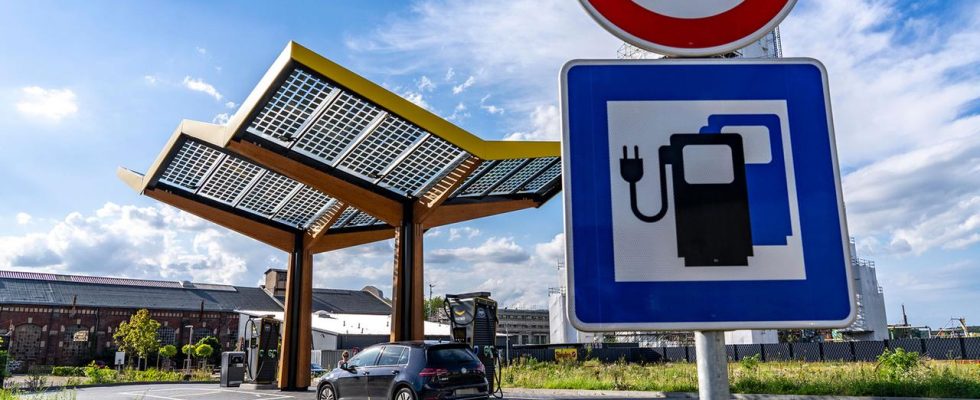Is the expansion of the charging infrastructure for electric cars in Germany progressing too slowly? The industry association BDEW considers the current range of public charging stations to be more than sufficient.
According to the industry association, the Federal Association of Energy and Water Industries (BDEW), Germany currently has more than enough charging stations for electric cars. “The good news is: We have an oversupply of charging options,” said Kerstin Andreae, Chair of the BDEW Executive Board. According to a survey by the association, as of July 1 drivers of electric cars had 100,838 public charging points with a total capacity of 4.5 gigawatts at their disposal.
According to the BDEW, the public charging points were occupied an average of 11.6 percent of the time. Depending on the district, there was an occupancy of between 3 and a maximum of 25 percent of the day (over 24 hours). Even during the day, between 9 a.m. and 8 p.m., the average occupancy rate was never more than 20 percent, according to the BDEW. The association collected these figures for the first time, which is why a comparison with the previous year’s values was not possible according to the association.
more technological Jump in charging power
Andreae took the figures as evidence that the federal government’s goal of one million publicly accessible charging points by 2030 is technically outdated, since it does not include “the technological leap in charging capacity”. “The charging capacity of vehicles and charging stations has tripled since 2019, and significantly more vehicles can be supplied per charging station.”
There are no more excuses as to why electromobility shouldn’t grow faster in line with the climate goals. A 15 million e-car strategy is now needed, which should be specifically aimed at the vehicle side, she demanded.
The President of the German Association of the Automotive Industry (VDA), Hildegard Müller, recently complained about the lack of public charging facilities. “In order to achieve the goal set, the rate of expansion over the past twelve months would have to be quadrupled,” she told Der Spiegel.
Purchase premium will continue shut down
The federal government is pursuing the goal of having at least 15 million fully electric cars on Germany’s roads by 2030. According to the assessment of the industry expert Stefan Bratzel, this goal will be “by far” missed. A “reality check is necessary,” said the head of the Center of Automotive Management (CAM) in Bergisch Gladbach recently. The political goals had to be reconciled with the necessary measures.
The industry expert Ferdinand Dudenhöffer assumes that the market share of battery cars in new registrations will slip to twelve percent from September. “The reason for this is the chaotic subsidy policy of the Federal Ministry of Economics.” According to the forecast, only 440,000 electric cars will be registered this year, 31,000 fewer than last year. The higher interest rates also slowed down the business, because electric cars are used more for leasing. Interest currently accounts for 25 percent of leasing rates, said the head of the CAR Center Automotive Research.
The federal government is currently promoting the purchase of an e-car with up to 4,500 euros. From September 1st, commercial buyers will no longer receive a subsidy. They account for two-thirds of new registrations. From next January, the federal government will reduce the subsidy to a maximum of 3,000 euros.

